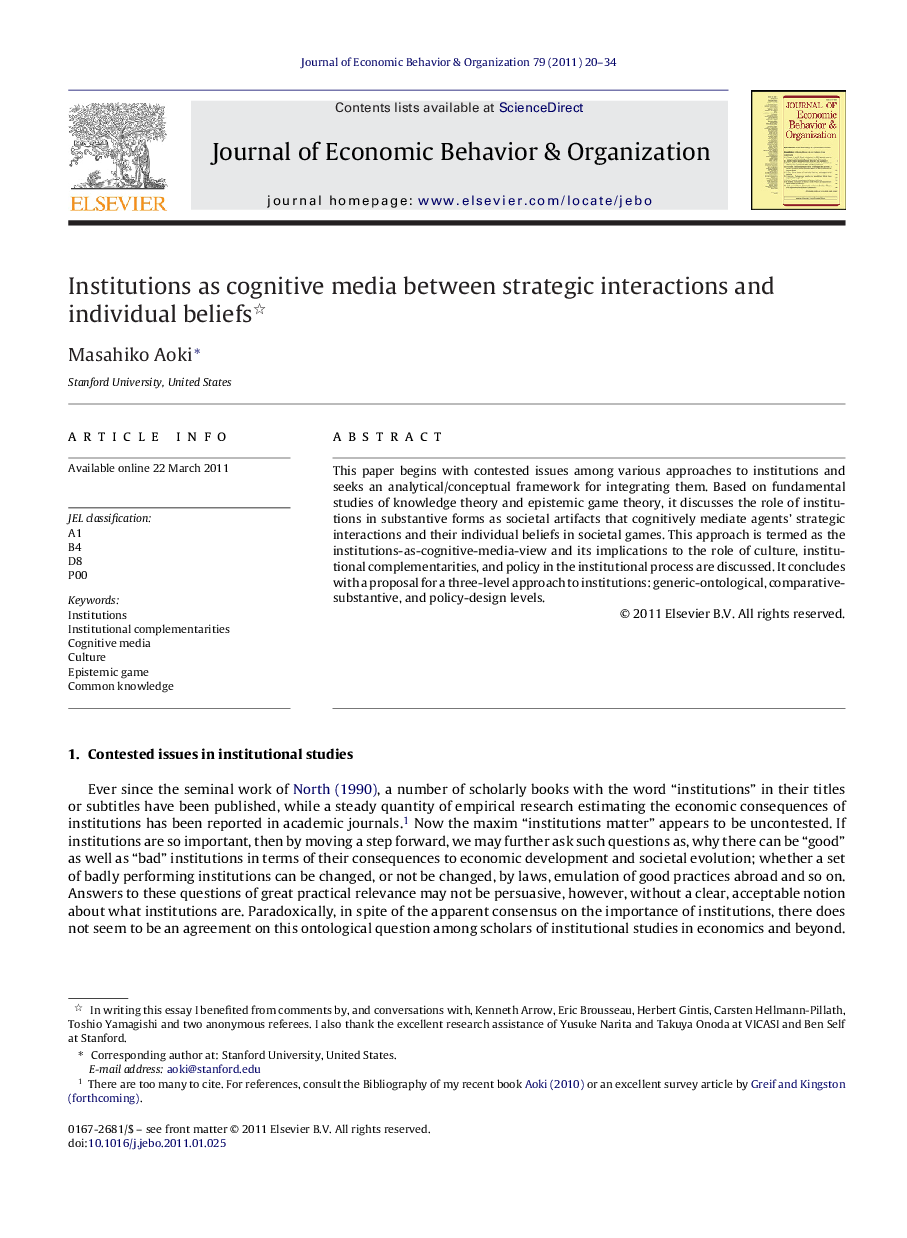| Article ID | Journal | Published Year | Pages | File Type |
|---|---|---|---|---|
| 884050 | Journal of Economic Behavior & Organization | 2011 | 15 Pages |
This paper begins with contested issues among various approaches to institutions and seeks an analytical/conceptual framework for integrating them. Based on fundamental studies of knowledge theory and epistemic game theory, it discusses the role of institutions in substantive forms as societal artifacts that cognitively mediate agents’ strategic interactions and their individual beliefs in societal games. This approach is termed as the institutions-as-cognitive-media-view and its implications to the role of culture, institutional complementarities, and policy in the institutional process are discussed. It concludes with a proposal for a three-level approach to institutions: generic-ontological, comparative-substantive, and policy-design levels.
► Various approaches to institutions are placed into a more comprehensive 2 × 2 framework composed of the cognitive (internal) vs. behavioral (external) dimensions, as well as the individual vs. societal dimensions. ► Externalized cognitive media (e.g., laws, norms, organizations) are essential for the institutional process. ► These media summarily represent the recursive state of play of the societal game and induce shared beliefs among agents so that the recursive societal state to be sustained. ► The evolution of institutions is discussed by making this 2 × 2 frame dynamic.
